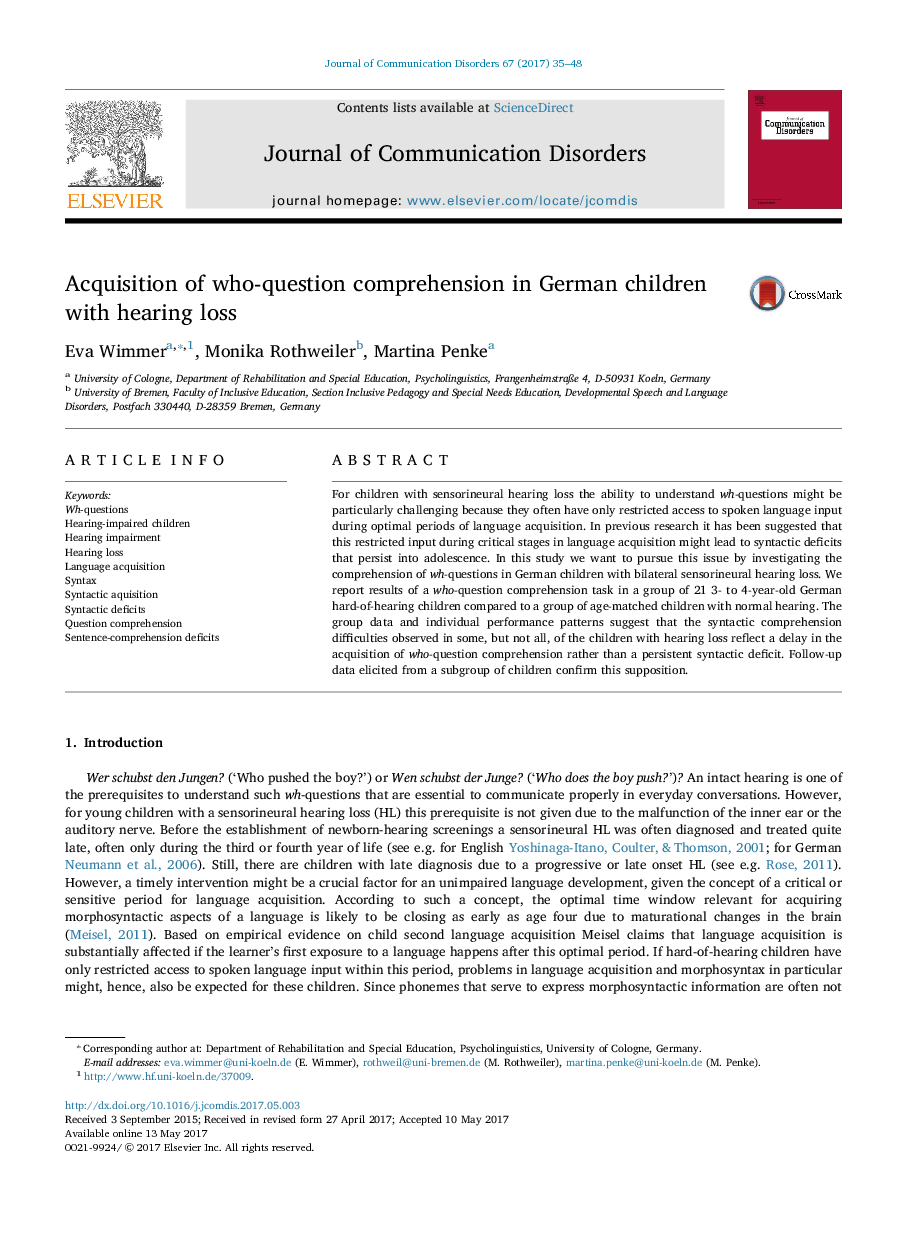ترجمه فارسی عنوان مقاله
دریافت درک کودکان در کودکان آلمانی با افت شنوایی
عنوان انگلیسی
Acquisition of who-question comprehension in German children with hearing loss
| کد مقاله | سال انتشار | تعداد صفحات مقاله انگلیسی |
|---|---|---|
| 115191 | 2017 | 14 صفحه PDF |
منبع

Publisher : Elsevier - Science Direct (الزویر - ساینس دایرکت)
Journal : Journal of Communication Disorders, Volume 67, May 2017, Pages 35-48
ترجمه چکیده
برای کودکان مبتلا به افت شنوایی حسینی، توانایی درک سوالات ممکن است به خصوص به چالش بکشد، زیرا اغلب تنها دسترسی محدود به ورودی زبان گفتاری را در طول دوره بهینه دوره یادگیری محدود می کنند. در پژوهش های قبلی پیشنهاد شده است که این محدودیت ورودی در مراحل بحرانی در تسلط زبان ممکن است منجر به نقص های نحوی که در نوجوانی ادامه یابد. در این مطالعه ما می خواهیم این مسئله را با بررسی درک مطلب سوالات در کودکان آلمانی با کاهش شنوایی حساسیت دو طرفه دنبال کنیم. ما نتایج حاصل از یک سوال درک یک سوال را در گروهی از 21 کودک 3 تا 4 ساله آلمانی کم شنوا گزارش می کنیم که در مقایسه با یک گروه از کودکان همسان با شنوایی طبیعی است. داده های گروهی و الگوهای عملکرد فردی نشان می دهد که مشکلات درک نحوی نحو در بعضی، اما نه همه کودکان با افت شنوایی مشاهده شده، منعکس کننده تاخیر در دستیابی به سوء تفاهم است و نه به عنوان یک کمبود روانشناختی. داده های پیگیری از یک زیرگروه کودکان منجر به تایید این فرض است.

